Published
- 08:00 am

Finastra today announced the appointment of Simon Paris as Chief Executive Officer. Paris, who currently serves as Finastra’s Deputy CEO, will take over as CEO from Nadeem Syed as a part of a planned succession process. The company’s strong performance during its first year has been driven by double-digit bookings growth and the integration of Misys and D+H.

“A once-in-a-generation transformation is taking place in the financial services industry and Simon has the vision, leadership and experience to lead Finastra through this evolution,” said Robert Smith, Founder, Chairman and CEO of Vista Equity Partners. “Over the past six years, Nadeem has built the company into a leading player in the Fintech industry, and Simon, with his understanding of how open platform technology can change the face of financial services, will take Finastra to the next level as a true platform company.”
In his role as Deputy CEO, Paris has been responsible for driving all of Finastra’s go-to-market operations including sales, marketing, and partner relations and has overseen significant growth in Finastra’s market traction and global footprint. He advocated the shift to a cloud-based model for all Finastra solutions and is spearheading the company’s transformation from a solution to a platform organization.
“I am immensely proud of what we have achieved at Finastra,” said Syed. “The breadth and depth of our solution portfolio is unparalleled in the industry and our leading-edge solutions are underpinned by an immensely scalable operational platform. Simon is a dynamic leader whose vision for the future of financial services is exactly what Finastra needs and I am confident that the company will continue to flourish under his leadership.”
During Syed’s tenure, he has more than doubled the company’s revenue, led the successful merger with D+H and increased the customer base from 2,000 to more than 9,000 globally. He was recently recognized as a winner in the 2018 CEO Today Europe Awards. Syed is joining Vista Equity Partners as an Operating Principal, and will continue to serve on Finastra’s Board of Directors providing guidance and counsel to Paris and the Finastra leadership team.
“Finastra is in a unique position in the Fintech industry. We are changing the way in which financial software is developed, deployed and consumed in financial services and I couldn’t be more honored to have been chosen to lead the company through the next stage of this incredible transformation,” said Paris. “The opportunity ahead is huge and with our board’s support, I’m looking forward to taking our employees, our customers and our partners on this journey.”
Related News
- 02:00 am
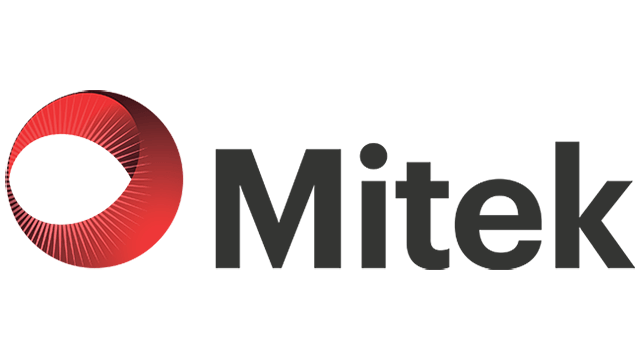
Joint offering additionally helps customers to comply with PSD2, AMLD5 and eIDAS regulations
Mitek (NASDAQ:MITK) a global leader in digital identity verification software solutions, and Signicat, the world’s leading trusted digital identity provider, today announced a partnership to improve the digital customer on-boarding process for Europe’s financial services companies, while helping clients in their efforts to comply with a number of regulations, including PSD2, AMLD5, and eIDAS.
For many European financial services companies, the battle to attract new customers is fierce. With new “challenger” banks emerging and smaller banks looking to capitalise on new technologies to provide a competitive advantage, every step of the customer acquisition process must be streamlined to achieve optimum success.
“At Signicat we commissioned a report, ‘The battle to on-board: The European perspective on digital on-boarding for retail banks’, to understand what consumers across Europe identify as problem areas when it comes to selecting new financial service providers,” said Gunnar Nordseth, CEO at Signicat. “We found that up 52% of European customers abandon the on-boarding process and one of the main reasons for this is the need to present paper-based ID documents. The research further found that 52% of respondents would be more inclined to register for a new service should the on-boarding process be 100% online.”
To compound this, new regulations throughout Europe are forcing institutions to more rigorously identify customers. In addition to AMLD5 and new KYC regulations, eIDAS opens the way for electronic identification and PSD2 places the focus on strong customer authentication. This multi-faceted focus on identity means that current on-boarding processes could become cumbersome and act as a deterrent to potential new customers.
Signicat has integrated Mitek’s Mobile Verify solution into the on-boarding engine within its Digital Identity Platform. This will enable financial institutions across Europe to verify identity documents though capture on a mobile device, and to seamlessly on-board customers.
Mitek’s Mobile Verify solution can verify the authenticity of identity documents by capturing an image with a mobile device and assessing its authenticity. This helps customers to ensure compliance with strict AML and KYC regulations.
“This partnership marks a watershed in the European identity market. Financial institutions can now on-board customers 100% digitally, doing away with the need to visit a branch,” René Hendrikse, VP and Managing Director, EMEA, Mitek commented. “With the arrival of PSD2 and increasingly stringent AML and KYC regulations, the ability to verify customers’ identity digitally is essential. Our partnership with Signicat offers one of the only platforms capable of this.”
“Partnering with Mitek enables us to jointly offer European financial services institutions a customer on-boarding solution that is 100% online. Our customers will not only be able to benefit from Mitek’s Mobile Verify solution, but also Signicat’s secure authentication, electronic signing and archiving of sealed documents, as well as our integration with over 30 public electronic ID schemes and registry lookups,” said Nordseth. “The partnership is designed to remove friction from the customer on-boarding process to ensure financial institutions can effectively compete in the marketplace.”
Related News
- 08:00 am

More than two thirds of the people in Finland, Sweden and Norway are worried about how companies use the personal data they collect. This is one of the main findings in a new SynoInt survey commissioned by Tieto. Over 90 percent of the respondents say it is important to be informed about how companies use their personal data but only one third believe that the companies do this well enough.
In the survey, over 2000 people in Finland, Sweden and Norway were asked about their attitude towards sharing their personal data with companies. The results showed that people’s attitude towards data sharing was predominantly negative. When comparing the three countries, people in Finland were most worried about how companies use their personal data (76%), followed by 71% in Norway and 60% in Sweden.
Almost all respondents consider it important to be informed about how companies use their personal data but only one third believe that the companies do this well enough.
- The survey shows a very clear gap between consumers' view on the importance of being informed about how companies use their personal data, and how well companies are at sharing this information. Trust is a foundation in any relationship, and it is earned by being transparent and acting in a credible way, says Marie-Louise Forsberg, Head of Retail at Tieto Sweden.
Young people more critical - and more positive
The report shows that people across all ages think it is important that companies inform them about how they use personal data. However, younger people (18-35 years) have a more positive basic attitude towards sharing their personal data with companies than those who are 36 years or older. A clear majority of young people also believe that companies are good at informing them about the use of personal data, while many older people think that companies are bad at this.
- Younger people are in general more knowledgeable about online integrity and more critical about their information sources. They are also more technically savvy than the older population and know more about how to protect their personal information online. This means that they are less skeptical towards the use of their personal data, as long as companies do not misuse their information, says Marie-Louise Forsberg.
The trust differs between industries – platform companies score low
The report also shows that the importance of being informed differs depending on the industry. Respondents in the banking and healthcare sector considered it most important to know how personal data is used. These are also the two industries people in the Nordics consider to be best at informing about how they use the personal data they collect. So-called platform companies (e.g. Airbnb and Uber) were among the industries that received the lowest scores.
- To find banks and healthcare in the top is natural, given the sensitive information they handle. That is probably also why people feel they are well informed about the use of their data in those industries, as they are more interested and worried about how it. is used, says Marie-Louise Forsberg.
Related News
- 06:00 am
![[Infographic] The Personalization Power Of AI Technology [Infographic] The Personalization Power Of AI Technology](https://financialit.net/sites/default/files/16best250x50-01_1_0.png)
With every passing year comes some new innovation that brands are harnessing in order to improve their business and hopefully increase sales. Usually, these innovations are in the tech industry, and this year there has been a huge focus on AI and the many potential benefits it has for a range of businesses.
Brands all over the globe are now using AI in a number of different ways, but fundamentally it is being used to improve brand experience. Although it may seem like a futuristic concept, we are already surrounded by AI.
For example, people may not realize that when their Google maps re-routes them to avoid an accident on their journey, it is a form of AI that is being utilized. There has also been a major surge when it comes to digital assistants, with Apple’s Siri and Microsoft’s Cortana being great examples of these, although there are a great many other companies that also offer this type of service.
One of the biggest goals for marketers using AI is to make the service they provide more personalized and predictive. One of the most current examples of a company that has already put this technology into action is Netflix, the popular TV hosting service.
It uses AI to provide personalized recommendations to its users based on what they like, rather than just basing suggestions on what they watched previously. More than 80% of the TV shows that people watch on Netflix are actually discovered through this recommendation system.
Sephora is another brand making its service more personalized by using AI. It utilizes a quiz at first to learn more about a customer’s product preferences, and then the company’s chatbot shares product suggestions, current relevant Sephora discounts and similar and relevant content.
Personalized service is just one of the huge range of ways that AI is and will be utilized by brands. Many companies are already using this technology, so other brands should get a move on and catch up before they are left behind.

Related News
- 08:00 am
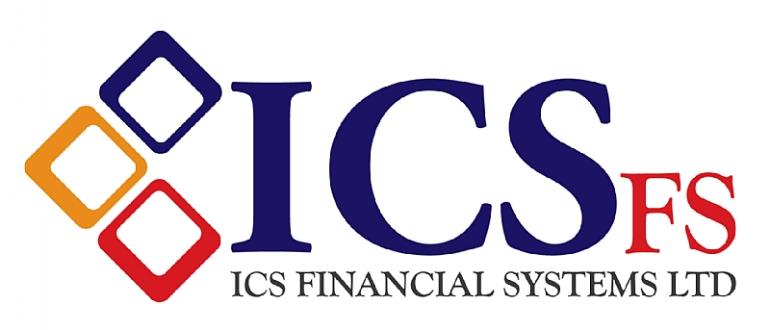
ICS Financial Systems Limited (ICSFS), a global software and services provider for banks and financial institutions and a Gold level member of Oracle PartnerNetwork (OPN), today announced it was invited by Oracle to participate and join the Partner Panel Discussion at Oracle Cloud Summit for ISV Executives, which was hosted in London on Wednesday April 18, 2018 at the Queen's House in Greenwich.
ICSFS was chosen by Oracle to be on their board of partner panel for being one of the first Oracle ISV partners in the MEA region to adopt and deploy its solutions on Oracle cloud technology and obtain full cloud certification for its ICS BANKS Universal Banking Application in the Oracle Cloud Marketplace.
During the summit, ICSFS’ Chief Technology & Innovation Officer; Ghassan Sarsak, engaged with Oracle executives and its partners, where he participated in the panel discussion to share ICSFS’ experience on the Oracle Cloud and showcased the innovative achievements that ICSFS has achieved in the Oracle Cloud for the banking industry.
ICS BANKS provides a complete suite of banking business modules with a rich sweep of functionalities and features, addressing business needs and automating accounting processes, as needed, to improve a bank’s business performance. ICS BANKS has always been a pioneer in utilizing the latest technology to serve financial institutions. In addition to its embedded Service-Oriented-Architecture (SOA), the system is deployed in a multi-tiered setup that runs on a web thin client.
Related News
- 02:00 am

Today TransferWise, Natixis Payments and Groupe BPCE, France’ssecond largest bank, announce a partnership that will enable Banques Populaires’ and Caisses
d’Epargne’s 15,1 million individual active customers to sending money to over 60 countries at the real exchange rate. It’s the first time in Europe that a major bank will directly integrate TransferWise’s API into mobile banking apps.
This partnership between Groupe BPCE, Natixis Payments and TransferWise is set to be launched at the beginning of 2019 and will offer a digital solution to send money outside the eurozone at TransferWise’s usual low fee. The service will be available 24/7 via the banks’ apps.
TransferWise, Natixis Payments and Groupe BPCE are committed to offering the best possible service and the fairest deal to their customers and this collaboration is an important step in making that a reality for everyone. This partnership fits in perfectly with Groupe BPCE’s TEC 2020 strategic plan toembrace digital innovation and tackle the digital revolution head on.
"Integrating fintech services in our customer journey is an integral part of Natixis Payments’ DNA andknow-how, allowing us to build better payments every day, says Pierre-Antoine Vacheron, Member of the Senior Management Committee of Natixis, in charge of payments. We are excited to join forces with a solution as innovative as TransferWise, that meets the critical needs of consumers today when it comes to international money transfer. This integration is a concrete use case of Instant Payment, of which Natixis Payments and Groupe BPCE are frontrunners.”
« TransferWise has a mission to make money move around the world as fast and as cheaply as email,explains Kristo Käärmann, co-founder and CEO, TransferWise. This partnership is a momentous step on that journey - for the first time a major mainstream bank is offering its customers the chance tobenefit from TransferWise’s lightning fast, low cost service. It’s great to work with such an influential institution trailblazing this innovation for the benefit of its customers. The banking industry is beginning to embrace the services challengers can offer, and we look forward to more banks joining us on this journey. »
Related News
- 03:00 am
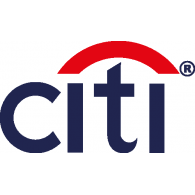
Citi has today announced that is has successfully enrolled as a Payment Initiation Service Provider (PISP) on the UK Open Banking Directory, becoming the first corporate bank to do so. Inclusion in the directory will allow Citi to begin piloting new payment and collection services for clients.
Ireti Samuel-Ogbu, EMEA head payments and receivables, Treasury and Trade Solutions, Citi commented: “We see Open Banking as a significant development in the banking landscape in Europe and increasingly in other regions as regulators seek to drive competition and innovation in financial services. Open Banking in the UK is particularly attractive to us and our clients as it enables collections with open APIs standardized and live across the Competition and Markets Authority nine banks. Citi continues to work with the UK Open Banking Implementation Entity (OBIE) and regulators around the globe to drive positive development in open banking and to deliver payment system innovations that work for both consumer and business users.”
Open Banking in the UK, which went live in January 2018, requires the nine largest UK banks to publish open APIs, enabling regulated third party providers to access bank accounts securely and with account holder consent, via open APIs. The directory is part of a wider shift in the global banking landscape from batch processing to real-time, hyper connected banking – an era of real-time payments and collections, and banking systems becoming accessible through APIs.
Imran Gulamhuseinwala, Trustee of the Open Banking Implementation Entity commented: “We are delighted to have Citi enrolled in our UK Open Banking Directory and are excited by their vision to leverage open banking to create new payment services for the UK market. As a leading global bank, Citi’s engagement is a strong endorsement of the UK Open Banking initiative and we look forward to further collaboration to develop the open banking ecosystem.”
Related News
- 03:00 am
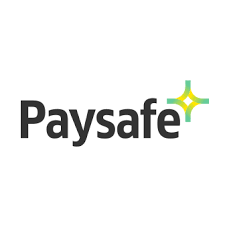
Leading global payments provider, Paysafe, today announces the global launch of its latest alternative payment solution - 'Paysafecash'. The pioneering and ultra-safe online cash payment option has been designed to cater for the sizeable number of online shoppers around the world who still prefer to pay by cash. Recent data indicates that despite the enthusiastic uptake of electronic payments by many, numerous online shoppers are growing increasingly concerned that online shopping all too frequently results in financial fraud and data breaches.
Developed by the same Paysafe team who created the award-winning, pre-paid cash solution -paysafecard, a global leader in the online prepaid payments industry - the launch of Paysafecash forms part of Paysafe's disruptive strategy of delivering an unrivalled suite of safe, frictionless and relevant payments products around the world.
Paysafe drew on both industry and proprietary research when developing the new cash product. Contrary to popular belief that all online goods are purchased using credit or debit cards or other digital methods, market data indicates that around two billioni adults in the world are still unbanked. Even in highly developed regions such as the European Union, over 57 millionii adults do not have bank accounts and 68%iii of transactions are still paid for using cash. In the UK, for example, despite the extensive usage of contactless payments, the number who rely almost entirely on cash has jumped by 500,000 to 2.7 million over the past two years according to data by Payments UK and the Bank of England. Fraud concerns and data security are often cited as a major reason for not wanting to share bank account or credit/debit card details online.
Unlike other online cash solutions in the marketplace today, Paysafecash offers a number of unrivalled and unique benefits. It's the first online cash solution that can be used to upload funds into digital wallets, including Paysafe's own popular digital wallets, Skrill and NETELLER. This means that Paysafe can now offer consumers who want it, an entire payments ecosystem running on cash, totally negating the need to have a bank account or share financial data online.
Additionally, with Paysafecash, shoppers can pay in exact amounts for the purchases they are making, rather than being forced to round up the amount to a fixed voucher denomination which is typically the only 'cash' option offered to date by online retailers.
This is how easily payment works with Paysafecash:
1. Generate barcode
The customer selects "Paysafecash" in the online shop as the payment method, loads the generated QR/barcode to his wallet, sends it to his mobile phone or prints it out.
2. Find payment point
Using the search function, the customer finds the nearest Paysafecash payment point.
3. Scan & pay
The customer has the QR/barcode scanned by sales staff in a payment point and pays the amount due. The online shop processes the order directly after payment.
The product launch also ties into Paysafe's new brand positioning of being the 'new Big' in the global payments industry as outlined in its recently re-vamped website and its 'Plug into Paysafe' global marketing campaign. As part of the Plug into Paysafe campaign, the payments provider is publishing the next iteration of its latest international study 'Lost in Transaction: Payment Trends 2018' this week. The new study reveals that 63% of consumers said they feel more comfortable purchasing online via a payment option where their financial details are not shared. A further study by CyberCorp showed that websites offering four or more payment options, in addition to credit cards, have a 12% higher conversion rate than online retailers only offering one alternative.
According to Udo Müller, Paysafe's CEO behind the product, Paysafe is focused on offering these much-needed additional payment options for online shoppers. He believes Paysafecash has the potential to drive millions of additional shoppers online representing a true growth driver for digital shopping and online retailers.
Müller commented: "Every day in the news we read about fraud and data breaches, often impacting well-known and established online retailers, so nobody is immune to the risks of sharing their account or card data online. On top of that, there are still significant tranches of our global population who remain unbanked and don't possess payment cards of any description. So we know there is a substantial need to provide a flexible and safe online cash solution to help both consumers and retailers overcome these hurdles.
Müller continued: "When developing Paysafecash, we wanted to create a pioneering cash solution that challenged other digital payment products out there and Paysafecash offers some truly unique features such as being the only cash solution that can be used to load funds into digital wallets.
This is another industry first for Paysafe and reinforces our track record of challenging the status quo to meet the unmet payment needs of both consumers and retailers."
Paysafecash is already live and proving popular amongst shoppers in 14 countries including Austria, Spain, Italy, Portugal, Hungary, the UK and Canada. Plans are underway to extend its availability in an additional 32 markets, including the US, by the end of the year.
Related News
- 05:00 am
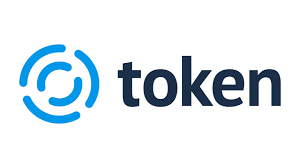
Empowers international FX leader to leverage open banking to offer a simple, fast and convenient way for customers to load their prepaid multi-currency cards.
Turnkey open banking platform provider Token today announces that it is enabling Caxton FX to provide a bank direct payments facility to its consumer and business prepaid multi-currency card customers.
Caxton FX is an international expert in foreign exchange. Its multi-currency cards and international bank transfer services are used by 750,000 private and business customers, and in 2017 Caxton FX processed 7.3 million transactions and transferred more than €1 for every man, woman and child on the planet.
Integration with Token’s platform enables Caxton’s customers to load their prepaid multi-currency cards with funds directly from their bank accounts via Caxton’s mobile app, making the cardholder’s loading experience significantly faster and more convenient than before. In the process, both Caxton and its customers also benefit from dramatically reduced costs, instant payments and increased security.
Routing the customer payment via Token instead of using conventional debit card rails decreases the cost of payment acceptance by over 50% and enables instant processing. Previously, customer loaded funds could take up to three days to clear. This new settlement time frame is significant for Caxton as it improves cash flow management.
Marten Nelson, Co-founder and CMO, Token, comments: “When done right, open banking represents the biggest opportunity for banks and financial service providers in the last 50 years. Its real power lies in enabling new levels of customer-centric products and services. For Caxton FX, this begins by offering a refreshingly simple and convenient way for new customers to load their cards. For the wider industry, the possibilities are endless. Our partnership with Caxton reinforces our commitment to all players in the digital ecosystem; we exist to help them lower costs and deliver an amazing, market-differentiating experience to their customers, through a rich, yet simple integration.”
Rupert Lee-Browne, CEO, Caxton FX, adds: “We are delighted to be working with Token on this highly innovative solution to open banking. The team at Token have been great to work with and we are very excited to be rolling this particularly useful feature out to our customers.”
Token’s unique technology platform ensures that only a representation of the cardholder’s sensitive payment data is ever transmitted, in the form of a Smart Token. These tokens can be re-used without any security degradation, meaning that the requirement to manually approve every payment is negated from the loading process, increasing efficiency.
Caxton FX and Token are embarking on a phased rollout of Token’s payment service, which begins with consumer cardholder onboarding in Q3 2018. The ability to load cards directly from bank accounts will be made available to the thousands of customers who join Caxton FX each month, as well as Caxton’s business multi-currency cardholders.
Related News
- 06:00 am

A report published today by payments processor RS2warns that the payment industry must consolidate omnichannel payments, card payments, and direct-from-bank Open Banking payments into new ‘Open Payments’ platforms to meet the demands of connected customers and the retailers serving them.
The report, Open Retailing and Open Banking—Payments Industry Challenges, examines the trends and technologies that are driving change in global commerce. It finds that:
- Mobile, contactless, and digital payments are fulfilling their promise of revolutionising retailing, hastening the decline of cash
- Omni-channel sales will account for more than half of total European retail sales by the end of the decade
- Regulation is a major driver of change, both directly, such as demands for new security standards, and indirectly, such as new fintech providers changing consumer expectations of financial service providers
- Open Banking, and similar schemes require the payments industry to enable card-less, and usually in-app, bank account-initiated payments for all checkout types, both physical and digital
These trends and changes are forcing retailers to be much more receptive to new payment types to meet consumer demands and keep up with competitors as well as reduce costs and drive operational efficiencies.
In order to support retailers, payment providers must invest now in creating Open Payments platforms that can interact with any payment ecosystem—whether that’s card payments, wallets that rely on card ecosystems such as Apple Pay and PayPal, or card-less payments through Open Banking. Furthermore, these Open Payment platforms need to offer more than payments. Services such as device management, customer insight, security, and compliance are valued highly by retailers, especially when they take advantage of access to customer account data under Open Banking.
“Whether it’s in-app, contactless, or via a chatbot in Facebook, consumers are eagerly adopting a wide range of ways to pay. In parallel, the advent of Open Banking has accelerated the card-less ecosystem and merchants are keen to harness the capabilities it offers. As payment types and networks fragment, it’s becoming increasingly important to take an open approach,” said Radi Abd El Haj,CEO and Executive Director, RS2. “Payment acquirers and processors need to offer choice, flexibility and ultimately openness, to ensure they can meet retailer and consumer demands. Open Payment platforms are essential to respond to these short-term changes, but more importantly, lay the foundation to capitalise on the value chains of the future.”
The report was created using the results of recurring market research, plus the views of leading retailers and industry experts. Open Retailing and Open Banking—Payments Industry Challenges can be downloaded here: https://www.rs2.com/open-retailing-open-banking-payments-industry-challenges/









